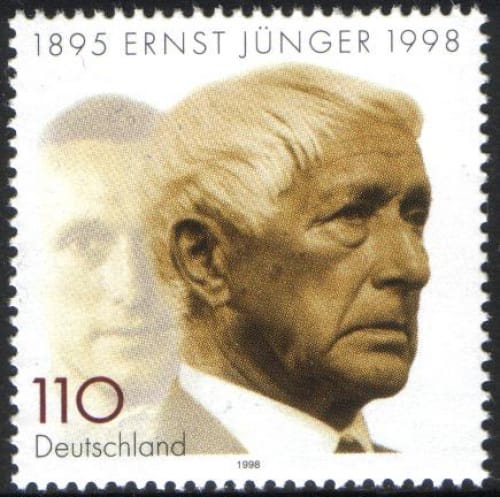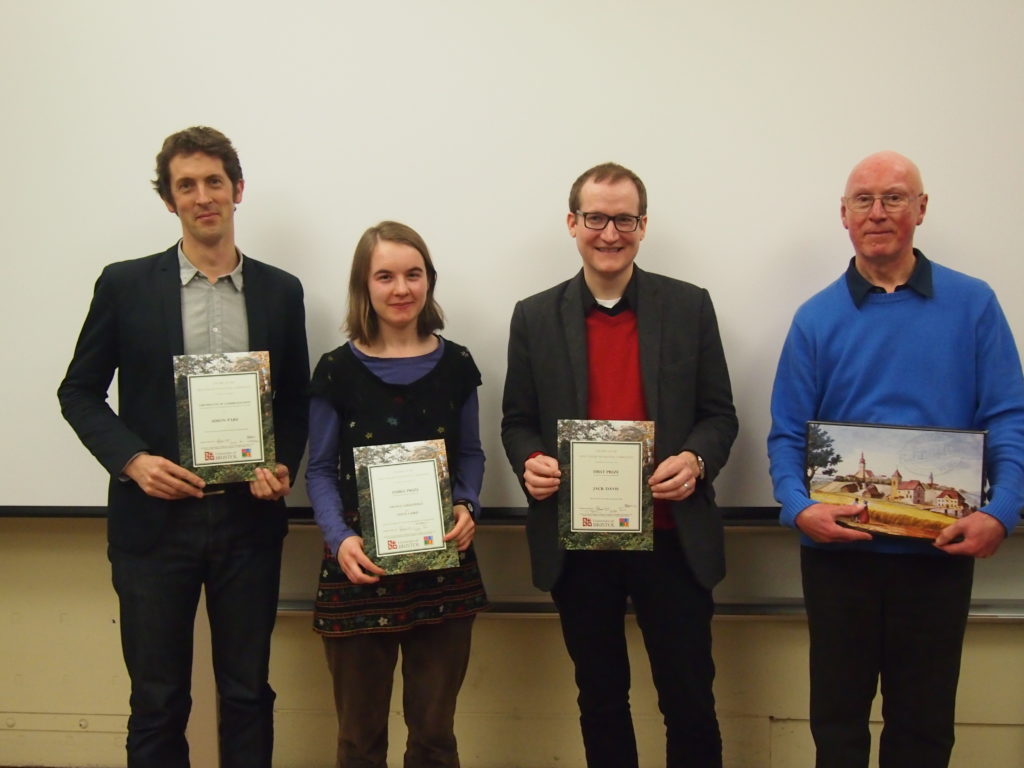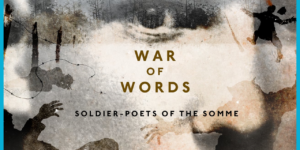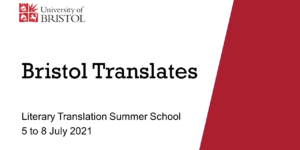 The jury of the Ernst Jünger Translation Competition, hosted by the University of Bristol’s School of Modern Languages, is delighted to announce the winners of the competition.
The jury of the Ernst Jünger Translation Competition, hosted by the University of Bristol’s School of Modern Languages, is delighted to announce the winners of the competition.
Joint 1st prizes are awarded to Nigel Cooper and Jack Davis, who win £300 each for their translations from Ernst Jünger’s Am Sarazenenturm (By the Saracen Tower). Iwona Luszowicz and Steve Laird are the runners-up and will receive £100 for their collaborative translation from Jünger’s Atlantische Fahrt (Atlantic Voyage). The judges would also like especially to commend the entries of Julian Reidy and Simon Pare.
The competition’s dedicated undergraduate prize is awarded to Joseph Prestwich, who wins £100. Constance Cramp receives a special commendation. The three commended entrants will receive a copy of Heimo Schwilk’s opulent biography of Jünger, Ernst Jüngers Leben und Werk in Bildern und Texten, and thanks to the generosity of Klett-Cotta Verlag, Jünger’s publisher, all participants will receive a copy of Heinz Ludwig Arnold’s Jünger reader, Ein abenteuerliches Herz.
The jury would like to thank all entrants for their participation and the great number of institutions and individuals who have helped publicise the competition. A prizegiving ceremony, open to the public, will be held on 17 December 2013 at the University of Bristol. More details about the prizegiving and the winners will be published in due course.
The five members of the Ernst Jünger translation competition jury were writer and translator Julian Evans, Dr Christophe Fricker (Bristol), Jünger’s translator Thomas Friese, Dr Petra Rau (UEA), and Professor Robert Vilain (Bristol). Sixty-four entries were received from 11 different countries on four continents. Participants were asked to translate an 8-page excerpt of their choice from one of three books of Jünger’s travel writings: Atlantische Fahrt (Atlantic Voyage), Am Sarazenenturm (By the Saracen Tower), or Zweimal Halley (Halley Revisited). Of the three, the diary of Jünger’s voyage to Brazil on board the Monte Rosa (later renamed the Empire Windrush) was the most popular, with 31 submissions. Funding for the competition was made possible as part of an EU-funded Marie Curie Action, focusing on Ernst Jünger’s intercultural encounters. This research project is currently being carried out by Christophe Fricker at the University of Bristol.
Ernst Jünger (1895–1998) was one of the most significant writers and thinkers of 20th-century Europe, and is one of the most controversial. He became famous with the publication in 1920 of In Stahlgewittern (Storm of Steel), an account of his experiences in the trenches in the First World War. In the following eight decades Jünger published more than fifty works, including diaries, novels, stories and essays. His novella Auf den Marmorklippen (On the Marble Cliffs, 1939) is a thinly veiled critique of the Nazi regime. During his lifetime and after his death Jünger has secured a prominent place in intellectual debates across Europe. He was a citizen of the world as well as a European, and there were few corners of the world he did not visit. The Ernst Jünger Translation Competition has aimed to enhance Jünger’s reputation in the Anglophone world and to highlight his substantial body of travel writings, which has received comparatively little attention, even in Germany.





